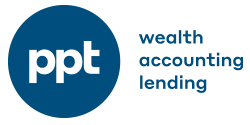Top 5 Considerations When Refinancing Your Home Loan
If you have an interest only home loan, its likely your home loan will shortly revert to principal and interest (P&I), which will result in much higher monthly repayments, which will be exacerbated by higher interest rates.
Rather than waiting for your bank to contact you, it’s best to get organised so you can get the optimal loan deal. Here are a few things to keep in mind.
- Interest Rates: The first thing you need to do is assess the current interest rate environment. The interest rates have risen significantly over the past year. If interest rates continue to rise, you may consider a fixed rate. However, if interest rates are likely to fall, you may be better choosing a variable home loan.
- Your break costs: If you refinance your fixed home loan before the end of the term, you will likely have to pay break costs. These costs can vary depending on your lender, but they can be significant. Make sure you factor in the break costs when you are comparing different refinance options as they can vary between lenders.
- Your financial situation: Before you refinance, you need to make sure that you are in a good financial position to do so. You will need to have a good credit score and a steady income. You will also need to have enough money saved up to cover the closing costs associated with refinancing.
- Your repayment strategy: If you are refinancing to a variable rate loan, you need to have a repayment strategy in place. Variable rates can fluctuate, so you need to be prepared for your monthly payments to go up or down. You may want to consider setting up an offset account or making additional payments to your loan to reduce your exposure to interest rate fluctuations.
- Your financial goals: Finally, you need to consider your goals when refinancing your home loan. Are you looking to save money on your monthly payments? Are you looking to shorten the term of your loan? Are you looking to access equity in your home? Once you know your goals, you can start to compare different refinance options to find the one that best meets your needs.
Conclusion
Refinancing your home loan from a fixed to variable interest rate can be a good way to save money. However, there are a few things you need to keep in mind before making the switch. Consider the current interest rate environment, your break costs, your financial situation, your repayment strategy, and your goals. Once you have considered all of these factors, you can start to compare different refinance options to find the one that best meets your needs.
Here are some additional tips for refinancing your home loan from fixed to variable interest rate:
- Get quotes from multiple lenders.
- Compare the different fees and charges associated with each loan.
- Read the fine print carefully before you sign any paperwork.
- Make sure you understand the terms and conditions of the loan.
- Ask questions if you don’t understand something.
Refinancing your home loan can be a complex process, but it can also be a great way to save money. By following these tips, you can make sure that you are making the best decision for your financial situation.
To discuss your lending requirements contact Ben McDonald on (03) 5331 3711 today.


